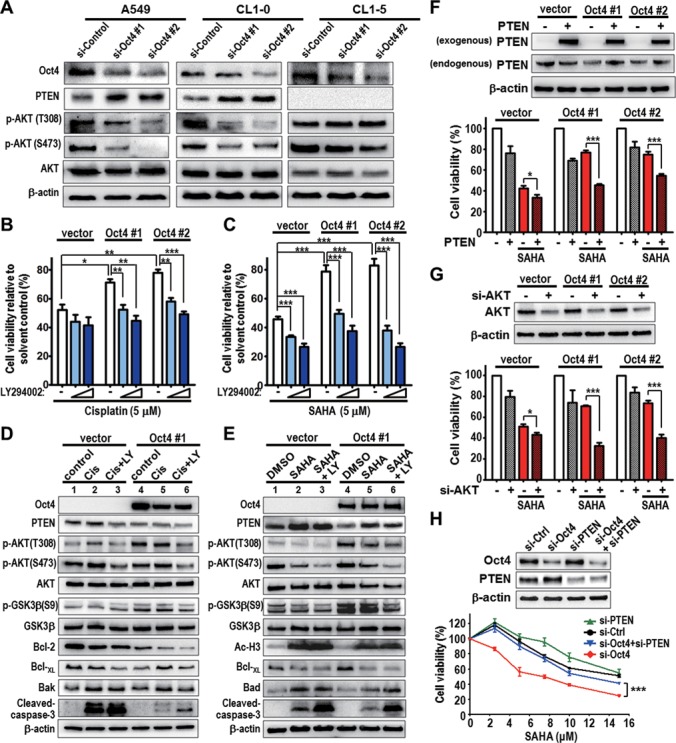Figure 5.

Oct4 induces drug-resistance via dysregulation of PTEN/AKT signaling. (A) A549, CL1–0 and CL1–5 lung cancer cells were transiently transfected with control (si-Control) and Oct4 (si-Oct4#1 and si-Oct4#2) siRNAs for 48 h and then subjected to western blot analysis of PTEN, AKT and AKT phosphorylation levels. β-actin was used as internal control. (B and C) Cell viability in vector control (vector) or A549 cells stably expressing Oct4 (Oct4#1 and Oct4#2) after treatment with solvent control, LY294002 (LY, 5 or 10 μM) and (B) cisplatin (5 μM), or (C) SAHA (5 μM) for 48 h. Cell viability was normalized to that of solvent control. (D and E) Western blot analysis of AKT signaling and apoptosis-related proteins in vector and Oct4#1 cells after treatment with LY294002 (LY) and (D) cisplatin (Cis), or (E) SAHA for 24 h. (F and G) A549 stable clone cells were transfected with PTEN expression vector (PTEN, F) or with AKT siRNA (si-AKT, G), followed by treatment with SAHA for 48 h. Western blot shows the efficiency of PTEN overexpression or AKT knockdown (upper). Cell viability was analyzed after drug treatment (lower). (H) A549 cells stably expressing Oct4 cells (Oct4#2) were transfected with Oct4 (si-Oct4#1) and/or PTEN siRNA (si-PTEN), followed by treatment with different concentration of SAHA for 48 h. Western blots show the efficiency of Oct4 and/or PTEN knockdown (upper). Cell viability was analyzed after drug treatment (lower). For all graphs, data are mean ± SEM. (n = 3). P-values determined using two-tailed Student's t-test. *P<0.05; **P<0.01; ***P<0.001.
